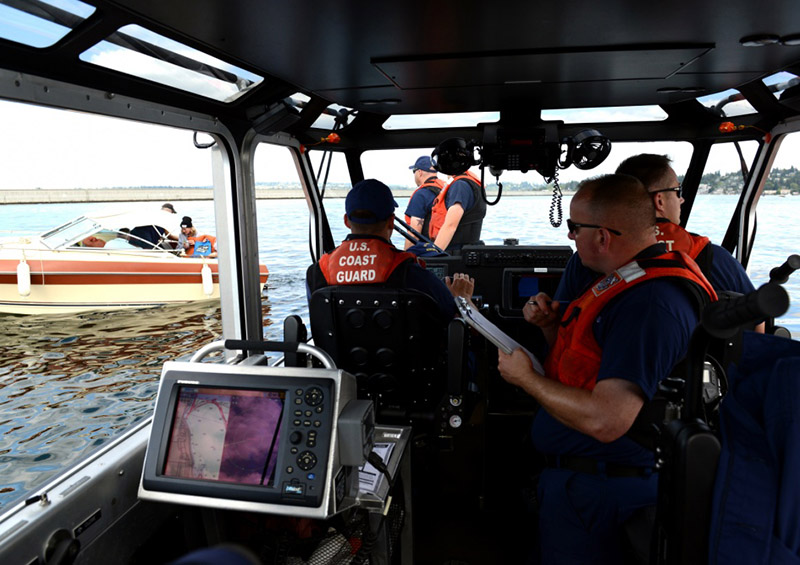A crackdown on illegal charterboats is coming to the Chicago area.
Last summer, the Coast Guard’s Marine Safety Unit (MSU) there investigated 22 reports of illegal passenger vessel activities. This year, they expect to triple that number since they’re getting better information
from the boating community.
“When we receive such reports, we make direct contact with the vessel owner/operator. Usually, they are unaware of the regulations and are eager to comply,” said Lt. Byron Rios, chief, investigations division for the Chicago MSU.
And to make sure people know what the law is they’re hosting an illegal passenger vessel and bareboat charter workshop on Saturday, April 29, in conjunction with the Chicago Harbor Safety Committee.
They expect an audience of 100 or more, some of whom they reached through the three major boat sharing apps that connect recreational boat owners with people looking for a good time on the water. Renters may not know vessels must carry lifesaving and firefighting equipment and meet federal hull construction and navigation equipment standards. They also sent invitations to rental operations.
The law requires a boat to be inspected if it carries more than six people with at least one paying passenger. Operators must be licensed to legally carry up to six paying riders. Commercial operators with six or more onboard — with at least one paying — must have a master’s license and a Certificate of Inspection (COI). Bareboat charters may carry a maximum of 12 without a COI. The Coast Guard has several enforcement options including taking control of the vessel, civil penalties up to $35,000, violation notices and revoking a master’s license.
Also, “a lot of captains don’t understand the consequences,” Rios said. “You will lose your license if you’re operating illegally.”
Illegal charters have always been an issue, but now they’re devoting an “unprecedented amount of resources” to the problem. The stepped-up enforcement is being coordinated with the Illinois Department of Revenue, the City of Chicago and its police department marine unit, the Illinois Department of Natural Resources as well as a number of Chicago area Coast Guard units including Coast Guard Investigative Services and the Coast Guard Auxiliary. The revenue agency is involved because owners renting illegally may not be declaring their income or paying taxes.
The Coast Guard finds that often when people are operating illegally they know exactly what to tell the officers — such as claiming a big group is just a bunch of pals. The agency is prepared to probe further into their claims to prevent accidents and fatalities.
“Even though there’s a ton of vessel traffic, we’re hoping word gets around that the Coast Guard is out there,” he said. “We want the boating community to feel our pressure.”



.JPG.small.400x400.jpg)

